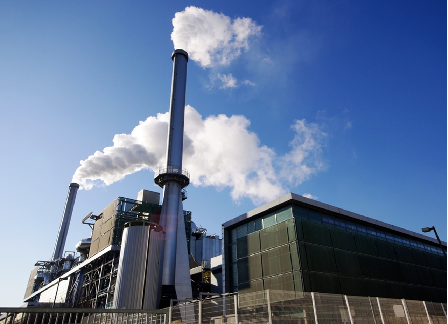Halliburton Cited for OSHA Violations in Liberty, PA
July 21, 2013Drilling, Fracking Cause Concern
July 21, 2013By Sue Smith-Heavenrich, Organic Gardening, June/July 2013
Before Carolyn Knapp signed a gas lease, she questioned the industry representatives as to its effect on her organic dairy certification. That was 7 years ago. Now, nine wells have been drilled within 2 miles of her Bradford County, Pennsylvania, farm and the water tastes so bad at times that her cows won’t drink it.
Neither will her husband. Last year, he suffered rashes all over his body; they disappeared once he quit drinking the water. Knapp’s cows had boils and skin rashes, too, and neighbors have noted skin lesions, fertility issues, and early miscarriages in their cows. Knapp can’t afford to test her water—lab fees can run as high as $3,200—and even if she could, she doesn’t know what to test for. Drillers don’t have to reveal what chemicals they use. But she believes her water problems stem from the nearby drilling and fracking operations.
Fracking, or hydraulic fracturing, is the process of pumping millions of gallons of water, mixed with chemicals and sand, into gas wells under pressures as high as 15,000 pounds per square inch. The pressurized fluid breaks shale and tight sandstones, releasing natural gas that has, until now, been too difficult and costly to extract. The gas industry says the chemicals—acids, biocides, scale inhibitors, friction-reducing agents, corrosion inhibitors, and gelling agents—make up only 1 percent of fracking fluid. Still, for the average fracking job in Pennsylvania, that’s 5 million gallons of water with 50,000 gallons of added chemicals—chemicals that, in some cases, have migrated into drinking-water aquifers.
Nineteen hundred miles away, in Pavillion, Wyoming, John Fenton faces similar problems. He raises alfalfa hay on 200 irrigated acres and runs a cow-calf operation on 500 or so acres of range. Fracking, he says, accounts for the exponential increase in gas wells surrounding his home—more than 200 within a 4-mile radius, some only 200 feet from his house. It’s also left his well water with a sweet hydrocarbon smell. Tests by the EPA and the U.S. Geological Survey show methane, plastics, polymers, phthalates, and glycols in the groundwater, including some of the same manmade chemicals used to drill the wells. Though his family drinks bottled water, they’re still exposed to the chemicals through bathing and breathing. Environmental exposure to fracking chemicals may have contributed to the sudden deaths of 10 calves, Fenton says.
Jim Fitzgerald has a different water problem. He raises sheep and organic vegetables on 380 acres in LaPlata County, Colorado. It’s a dry area, made drier by recent drought and excessive pumping of groundwater for gas extraction.
“Our water levels have declined since they started drilling in the late ’90s,” says Fitzgerald, who ended up wrangling over water rights in court.
Drilling also contaminates air. Emissions from machinery used in fracking create more ground-level ozone in some areas of rural Wyoming and Texas than is found in Los Angeles. Ozone at ground level is a pollutant that affects plant growth, flowering, and fruiting; reduces yield; and, in the case of spotting on spinach leaves, can make crops unmarketable.
Compressor stations—used to pressurize natural gas going from wells into pipelines or to inject gas into storage wells—are another source of harm. Four years ago, a compressor located 1⁄2 mile from Angel Smith’s Clearville, Pennsylvania, farm exploded. Tiny oil droplets rained down on her gardens and fields, destroying produce and hay valued at more than $25,000 and putting her 550-bush pick-your-own blueberry patch out of business. “Every day, families would bring children to pick,” Smith says, “but since the compressor blew, not one person has come by.”
The Pennsylvania Association for Sustainable Agriculture (PASA) and the Northeast Organic Farming Association of New York (NOFA-NY) have petitioned their states for a moratorium on fracking until studies can show it won’t harm farms and the foods they produce. “[Fracking] can’t become a burden on the farmer,” Knapp says.



